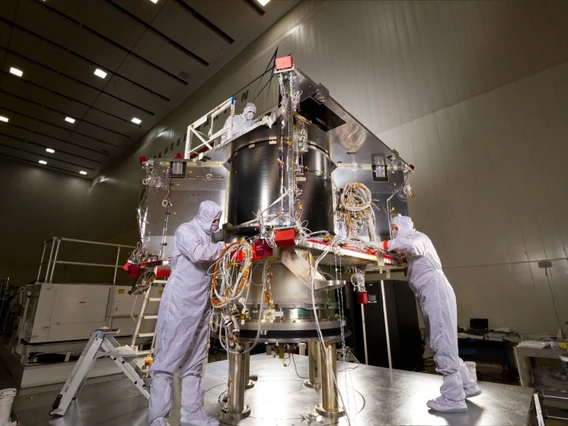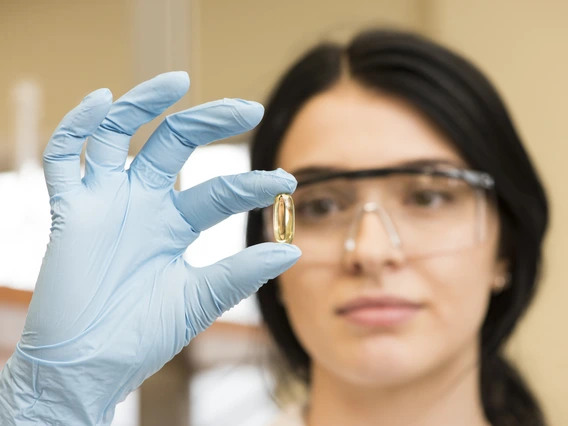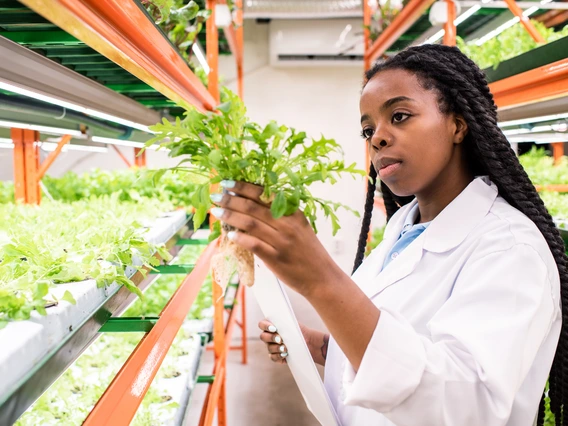Undergraduate Major Programs

Aerospace Engineering
Learn to design and maintain spacecraft, commercial aircraft, fighter jets, and more while developing working knowledge of aerodynamics, control system design, gas dynamics, solid and fluid mechanics, and thermodynamics. Explore opportunities to complete industry-sponsored capstone projects, some of which become commercial products.

Agricultural Technology Management and Education
Leadership and Communication Emphasis
Prepare to lead the next wave of agriculture and natural resource innovation and to become a leader, community change agent, or ambassador or advocate for the agriculture industry while studying science, technical agriculture, and principles of entrepreneurial leadership while building communication, management, and problem-solving skills.

Agricultural Technology Management and Education
Teaching Emphasis
Become a future innovative leader who finds solutions to the world's social, environmental, economic, and resource challenge. Complete coursework from basic sciences—plant, soil, and animal—agricultural mechanics, and the principles of the teaching-learning process and wrap up with a 14-week student teaching internship at a cooperating center in Arizona.

Anthropology
Archaeological Sciences Emphasis
Sharpen analytical skills, develop logical arguments on sound data, and learn to understand the current human condition from the perspective of a nuanced historical perspective. Establish a foundation in traditional science classes, such as biology, chemistry and physics, for the in-depth study of archaeological methods and theories.

Applied Biotechnology
Build a solid foundation in microbiology, plant biology, food science, and nutrition with hands-on learning alongside faculty mentors and industry partners as you learn how to use microorganisms and plants in modern food production, medicine, and the chemical industry in biosciences careers in agriculture, food, or manufacturing.

Applied Biotechnology
Industrial Plant and Microbial Biotechnology Emphasis
Learn how to use plants and microbes to develop products and technologies that help improve our lives and the health of the planet with applications in many fields, such as agriculture, food processing, medicine, and the industrial production of biomolecules, biofuels, and other chemicals.

Applied Humanities
Fashion Studies Emphasis
Express your sense of style while developing your creative, interpersonal, and business skills. Acquire the knowledge you need to enter and shape the fashion industry while learning about fashion retailing, emerging fashion markets, producing and marketing fashion ethically and sustainably, and the relationships between human culture and fashion.

Applied Humanities
Spatial Organization and Design Thinking Emphasis
Prepare for jobs that communicate about—and effect change in—buildings, cities, and landscapes with courses in sustainability, digital media, fabrication technology, and more. This degree can also be a stepping stone to graduate studies in design, architecture, urban planning, and landscape architecture.

Applied Physics
This interdisciplinary program serves as a launchpad for careers solving real-world problems in the private sector or for advanced study in applications such as engineering and medicine. This major combines a broad interest in physics with practical career skills, networking opportunities, and an Engineering Senior Design Project.

Architectural Engineering
Develop your foundation in structural health monitoring and analysis, materials processing, water and energy efficiency, and gain real-world experience through specialized projects, architectural studio courses, and paid internships while preparing for a career focused on the structural integrity and resilience of buildings and the comfort and health of their occupants.
Pagination
Environmental Themes
Career Fields












